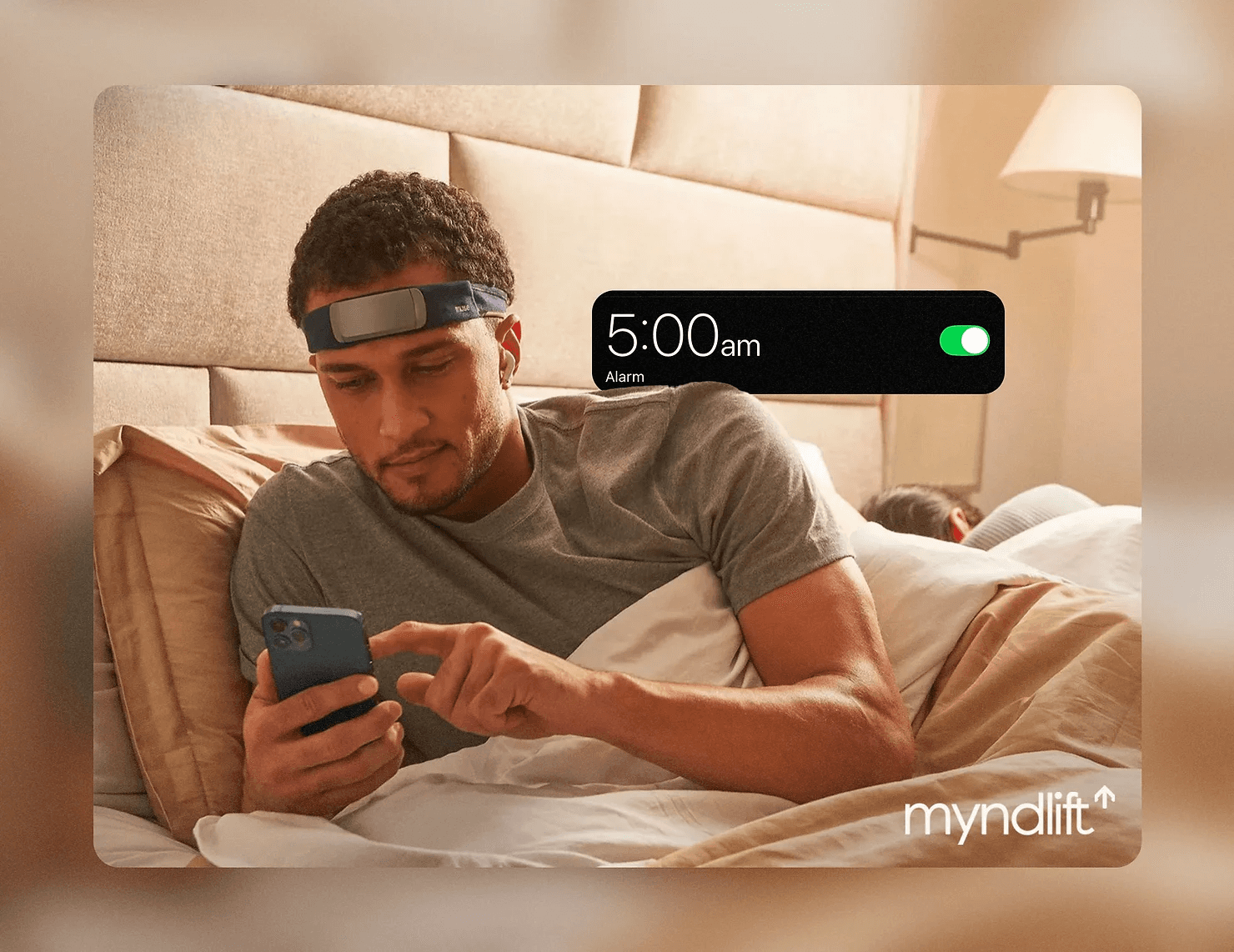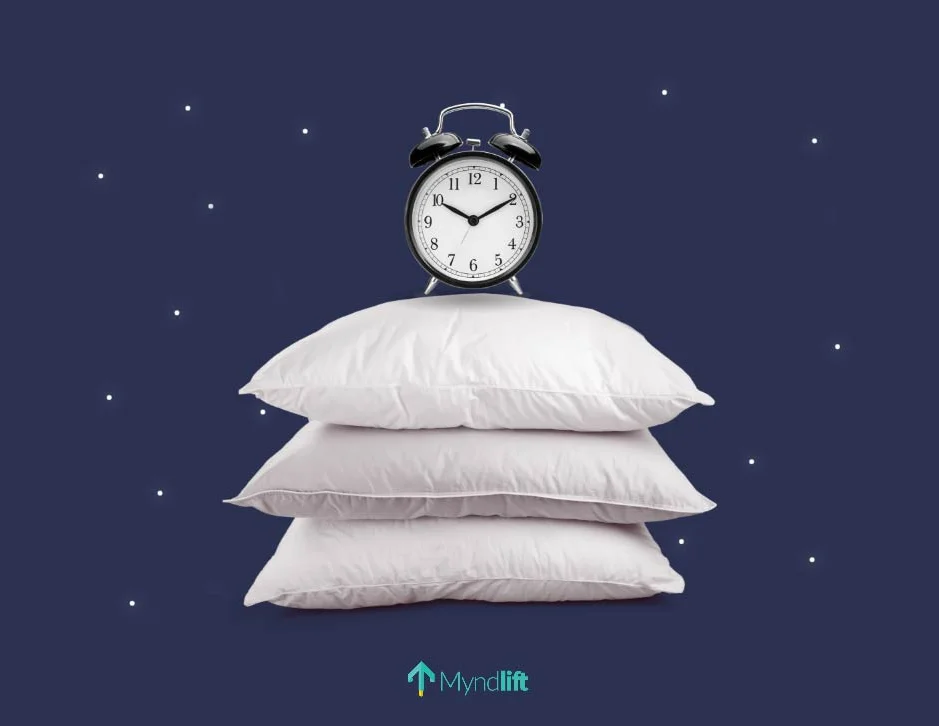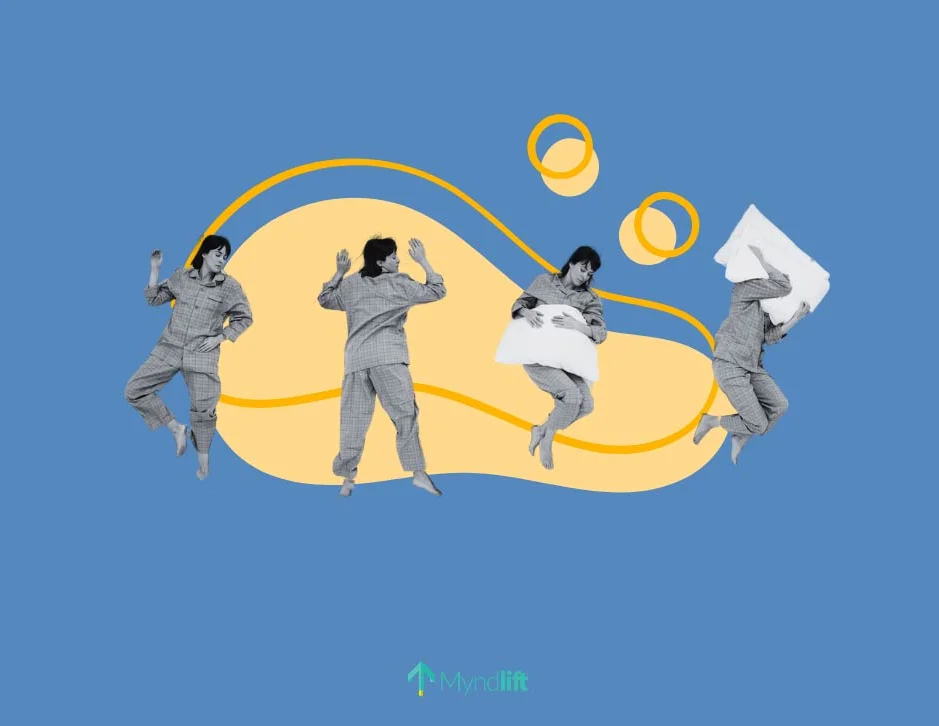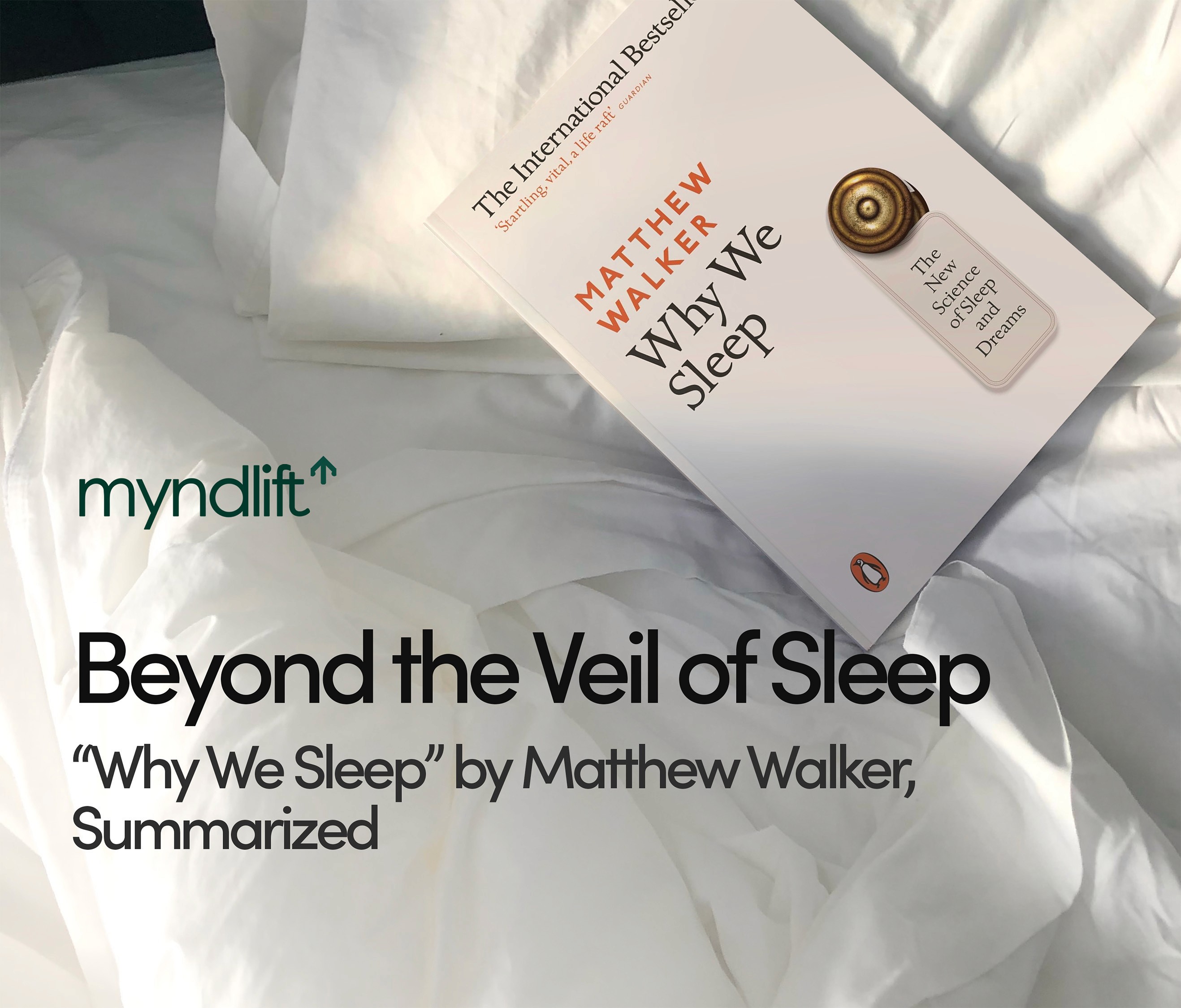The average wake-up time in the United States is 7.20 AM, making it one of the earliest starting points in the world.
Historically, America has always emphasized early rising, associating it with heightened productivity and motivation. Yet today, a 7 AM wake-up is often not early enough for those dedicated to the so-called 'rise and grind', with an advocacy for a 5 AM start as the optimal way to kick off the day.
But does the early bird truly catch the worm, or might some individuals thrive better with a later wake-up time? In this article, we'll explore:
The 5 AM Hype
This super early wake-up was first introduced by Robin Sharma, a leadership coach and advisor to household name brands, including Nike, NASA, and Microsoft.
In his book The 5 AM Club, he guides readers to wake up at 5 AM to make the most of their day and boost focus. Immediately after hopping out of bed, he suggests a 20/20/20 rule of:
20 minutes of exercise.
20 minutes of reflection.
20 minutes of learning.
While the idea of this may sound idyllic and productive, the reality isn't always quite as simple.
Does Your Brain Wake Up At 5 AM?
The simple truth is that not all brains are wired to wake up at 5 AM - or 6 or 7 AM, for that matter.
Genetics may play a role in what time you should wake up. Research shows that the "circadian rhythms generated by our internal biological clocks vary from individual to individual; most clocks run slightly longer than 24 hours, while some run slightly shorter."
If your brain isn't geared towards being energized at 5 AM, then you might be waking up too early, and those wonderful benefits just won't feel quite as wonderful to you.
The Different Sleep Chronotypes
To understand more about your personalized internal body clock, it's a good idea to understand sleep chronotypes, which are your natural inclination toward sleeping and waking at certain times of the day.
It's accepted that sleep chronotypes are influenced by genetics. In other words, you're born with a pre-determined affinity to be either an early bird or a night owl.
One theory is that sleep chronotypes are an evolutionary mechanism, developed from humans' need to take turns sleeping. While the early bird slept, the night owl would keep watch and vice-versa.
To learn more about sleep chronotypes and begin answering the question of 'Is it good to wake up at 5 AM?', let's take a look at the difference between early and late chronotypes to help understand where you may fall on the spectrum.
Early Chronotype
The early chronotype is the most common, with sleep rhythms that follow the movements of the sun. In other words, you tend to wake up with the sunrise and get sleepy around sunset.
If you have an early chronotype, you slot into society's typical lifestyle pretty nicely.
You'll be able to wake up at around 7 AM to meet a 9-5 work schedule, with productivity peaking between 10 AM and 2 PM.
You'll still have the energy to socialize or stay active after work, too, creating a healthy work-life balance.
If you fall more in the early end of the spectrum, you'll tend to feel more energized and productive in the morning, with the possibility of staying alert into the early afternoon.
As it reaches around 3 PM, though, you might feel your energy start to fade, and in the evening, you'd rather take it easy and head to bed early than do anything too demanding.
Early chronotypes tend to wake up at around 6–7 AM and go to bed at around 9–10 PM.
Late Chronotype
If you fall more towards the late end of the chronotype spectrum otherwise known as "night owls", you might take longer to wake up and struggle to function for the first couple of hours of the day.
By around midday, you reach your peak, and the rest of the afternoon and evening is your time to shine. This is when you do your best work and feel the most creative.
People with night owl genetics tend to feel energized into the night and struggle to fall asleep any earlier than 11–12 PM.
Not everyone can follow a sleep pattern easily. You're likely to have a late chronotype if you experience fragmented sleep and a pattern that never sticks.
These are people who often wake up early and go to bed late, with poor sleep when they do manage to get some rest.
Can You Change Your Chronotypes?
Since chronotypes are largely genetic, they can be very difficult to change.
It has been noted, though, that your natural tendency to be more productive in the morning or evening changes over your lifespan, with early bird vs. night owl shifting in adolescence (an increase in late chronotypes) and old age (an increase in early chronotypes).
Aside from these age-related shifts, changing your chronotype is very challenging. This means that whether you benefit from waking up at 5 AM is largely out of your control.
You can, however, work to shift your circadian rhythm towards an earlier start. This involves practices such as:
Managing light exposure:
Dim or turn off the main lights 90 minutes before bed.
Spend 30 mins outdoors in direct sunlight shortly after waking up.
Limiting caffeine intake:
Avoid drinking caffeine at least 6 hours before bedtime.
Instead, try swapping to decaf or herbal teas.
Reducing the use of electronic devices in the evening:
Avoid scrolling on your phone or watching TV at least one hour before bed.
Schedule 'Night Shift' mode across all devices to help block out blue light 2 hours before you aim to fall asleep.
A Note of Social Jetlag
Be aware of social jetlag. This occurs when your chronotype and social obligation are misaligned, and it can lead to increased cardiovascular risk and adverse endocrine function.
REM Sleep Matters
To understand more about how chronotypes affect your sleep, we should consider the rapid eye movement (REM) aspect of your sleep cycle.
It's well-known that most REM occurs towards the latter half of your sleep, which is when you'll be experiencing the highest quality of rest.
The final cycle of REM is also the longest, making it incredibly important that you reach this point in your sleep cycle to feel fully rested when you wake.
Sleep cycles, including REM, occur in roughly 90-minute intervals. The timing of REM disruptions is usually influenced by sleep duration and timing rather than chronotype.
If your chronotype means that your REM is shifted towards the early morning, that 5 AM start could interrupt the most important cycle. This may leave you feeling tired, irritable, and far from productive.
What Happens When You Wake Up at 5 AM?
Scientifically, the best time to wake up depends on your personal chronotype. This means that the effects of waking up at 5 AM won't look the same for everyone.
For early chronotypes, their best time to sleep and wake up could coincide with a 5 AM start, especially if they follow advice for getting a more restful night's sleep.
However, if you're a late chronotype, a 5 AM start could lead to sleep deprivation. This can have a number of adverse effects, including anxiety, depression, cardiovascular disease, and obesity.
And if you're trying to wake up at 5 AM to have a more productive day, it's important to note that not getting enough sleep makes it harder to focus, too, and can stifle your creativity.
How to Feel More Awake in the Morning
To kickstart the day on a high note, try to prioritize getting good quality sleep that aligns with your chronotype instead of waking up at 5 AM.
For example, if you know you're a late chronotype, try to do your morning tasks in the evening. This would let you get a little more sleep, working with your chronotype to secure that all-important REM.
You can also improve your sleep or start shifting your circadian rhythm by taking melatonin supplements or trying bright light therapy.
Ultimately, understanding your sleep chronotype and how your brain functions is key to finding a sleep pattern that works for you - and much more important than waking up at 5 AM.
Myndlift provides a personalized expert-guided brain health program that can help you elevate your wellbeing by improving your sleep quality, focus, calm, and self-control over mood. Take this 10-second quiz to check if you’re eligible to kick-start your journey for better brain health.
About the author:

Sophie Bishop
Sophie Bishop is a healthcare specialist and freelance journalist. She has contributed to many online and printed publications based on health and wellbeing, and has a passion for the field.
About the checker:
Kaija Sander, Ph.D.
Kaija Sander is a cognitive neuroscientist and scientific consultant for Myndlift. She holds a BSc in Biomedical Science with a specialization in Neuroscience and Mental Health from Imperial College London and a PhD in Neuroscience from McGill University. Her doctoral research focused on brain connectivity relating to second language learning success. She is passionate about the broader applications of science to have a positive impact on people’s lives.
References
Ebisawa T. Circadian rhythms in the CNS and peripheral clock disorders: human sleep disorders and clock genes. Journal of Pharmacological Sciences. 2007;103:150-154.
Kalmbach DA, Schneider LD, Cheung J, Bertrand SJ, Kariharan T, Pack AI, Gehrman PR. Genetic Basis of Chronotype in Humans: Insights From Three Landmark GWAS. Sleep. 2017
Randler, C., Faßl, C., & Kalb, N. (2017). From Lark to Owl: Developmental changes in morningness-eveningness from new-borns to early adulthood. Scientific Reports, 7(1), 1-8. https://doi.org/10.1038/srep45874
Monk, T. H., & Buysse, D. J. (2014). Chronotype, bed timing and total sleep time in seniors. Chronobiology International, 31(5), 655–659. https://doi.org/10.3109/07420528.2014.885981
Rutters F, Lemmens SG, Adam TC, Bremmer MA, Elders PJ, Nijpels G, Dekker JM. Is social jetlag associated with an adverse endocrine, behavioral, and cardiovascular risk profile? J Biol Rhythms. 2014 Oct;29(5):377-83. doi: 10.1177/0748730414550199. Epub 2014 Sep 24. PMID: 25252710.
Patel AK, Reddy V, Shumway KR, Araujo JF. Physiology, Sleep Stages. 2024 Jan 26. In: StatPearls [Internet]. Treasure Island (FL): StatPearls Publishing; 2024 Jan–. PMID: 30252388.
"Front Matter." Institute of Medicine. 2006. Sleep Disorders and Sleep Deprivation: An Unmet Public Health Problem. Washington, DC: The National Academies Press.




